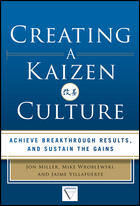Just so there’s no misunderstanding, the ‘PC’ referred to in the title is not about political correctness, a very bad disease in its own right. In this case it’s about panic calibration.
Calibration laboratories recognize the symptoms when they receive the phone call from an individual under great stress. The caller usually explains that the world as we know it will end if he can’t get his stuff calibrated within a near-impossible time frame. In extreme cases the afflicted don’t bother to call. They show up at the lab with the corporate jewels in a box and ask if they can wait while it’s done.
Post mortems on the victims of this dreaded curse reveal that its attack is triggered by cost cutting, poor planning, systems that aren’t, and computer viruses to name a few of the culprits. Often, a newly engaged quality manager is attempting to restore order to a situation that is out of control.
Not one wants to bite the bullet in these circumstances, but some try to deal their way out of it if they can and get into a state of shock when their suggestions for the lab are turned down.
The first attempt at damage control is to see if the lab can do the job immediately. Most gages, masters and of course, gage blocks require time in the lab to reach temperature stability. The lab could skip this step but the measurements won’t be worth having and the report won’t be accredited because the approved procedure was not followed.
Some companies want to hide all evidence of an oversight and ask the lab to backdate their reports to do so using the dates provided. Any lab wishing to retain its accreditation won’t do this, especially since they’ll have to play games with their records to pull it off. Remember, their operations and records are assessed by an outside expert on a regular basis.
In a desperate desire to improve delivery, some customers want the calibration source to just “do a quick check” and give them what they want: a piece of paper saying the work has been done. Data would just clutter up their records. They get upset when advised that delivery may or may not be improved, but once again, since their accredited procedures won’t be followed, the report they issue will not be accredited.
Quality audits are a way of determining the state of your system’s health. Like their medical equivalent, they can be used to provide preventative medicine now rather than a cure later when circumstances could be much worse. Skilled practitioners seem to be like bloodhounds and sniff out one or two little errors that wave flags compared to a multitude of things that are okay. But that’s what you pay them to do, so don’t get too riled up over it.
If you have a mess to clean up on the calibration side of things don’t be intimidated by the magnitude of the condition. And avoid panic requests to your calibration source that, more often than not, will intensify the panic. Don’t try to hide symptoms that will be obvious during a checkup. Deal with the cause of the panic to reduce or perhaps eliminate it.
There are two kinds of equipment used by every company: those instruments or gages that are required for immediate use and those that are not. In the latter case, quarantine them or label them with a “calibrate before use” sticker. Get them calibrated as you normally would and review the results carefully to determine if some work may have been compromised.
Items required for immediate use may be more difficult to deal with, but hopefully will be a very small percentage of the overall lot. You may be able to get your calibration source to give you a priority service to prevent problems. Alternatively, when micrometers and calipers are involved, you could do a spot check on them using gage blocks. This is not a substitute for them being properly calibrated in a controlled situation but should alert you if any of them are seriously infected. Note on their record that a spot check was carried out and the results for comparison with those from a proper calibration report that follows.
You will be cited for this deficiency, but the post audit situation may be easier to deal with than the all-out panic you started with.



